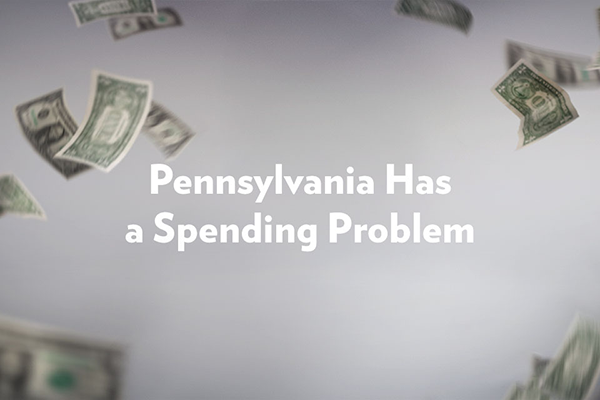Media

Securing Pa.’s Fiscal Future
Balancing a budget may come naturally to many Pennsylvania families, but in Harrisburg, it’s an idea that has been recently overlooked. And given the latest federal court decision prohibiting a fund transfer from the Joint Underwriting Association, it appears the state may have an unbalanced budget once again.
Making matters worse is the commonwealth’s inability to weather economic recessions or gridlock, as concluded by Pew Research. The nonprofit organization found eight states have saved “less than a week’s worth of operating costs.” This includes Pennsylvania, which has only enough savings to “fund operations for less than a tenth of a day.”
These problems didn’t appear overnight. Since 1970, the state has increased spending by more than $16,000 per family of four (adjusted for inflation). Overspending has been a bipartisan problem and the source of Pennsylvania’s fiscal woes.
Gov. Wolf and other lawmakers continue to believe raising taxes is part of the solution. This despite the passage of a $650 million tax increase package that has shuttered nearly a hundred businesses and convincing evidence that high-tax states chase residents away and are generally in poor fiscal health.
Still, the Wolf Administration is pushing for higher taxes on the natural gas industry and consumers. Coupled with an already high tax burden, this policy would ultimately shrink the real incomes of the working class and prolong the lackluster growth of the state’s economy.
Instead of placing a greater tax burden on people and businesses, state lawmakers should adhere to the spending limits outlined in the Taxpayer Protection Act (TPA). The TPA limits spending increases to a fixed amount based on inflation and population. For instance, the TPA index for the upcoming budget year is 1.32 percent, allowing for a spending increase of $422 million.
Adopting a TPA budget for the upcoming fiscal year—and passing House Bill 110 as a first step to enshrining the TPA in the constitution—would require government to prioritize spending by reducing waste and eliminating unnecessary programs.
Plus, predictable spending increases make balancing the budget easier and would generate budget surpluses. As an example, if TPA had been applied to the General Fund from fiscal year 2003-04 through 2017-18, Pennsylvania would be spending $2 billion less and a family of four would have saved a cumulative $10,000 over that same period.
The House has already passed HB 110. The Senate now has an opportunity to join the House and move the legislation through the constitutional amendment process. Additionally, both chambers must still pass a budget. As the new fiscal year approaches, lawmakers can move Pa. forward by agreeing to a budget that controls spending and protects families from higher taxes.